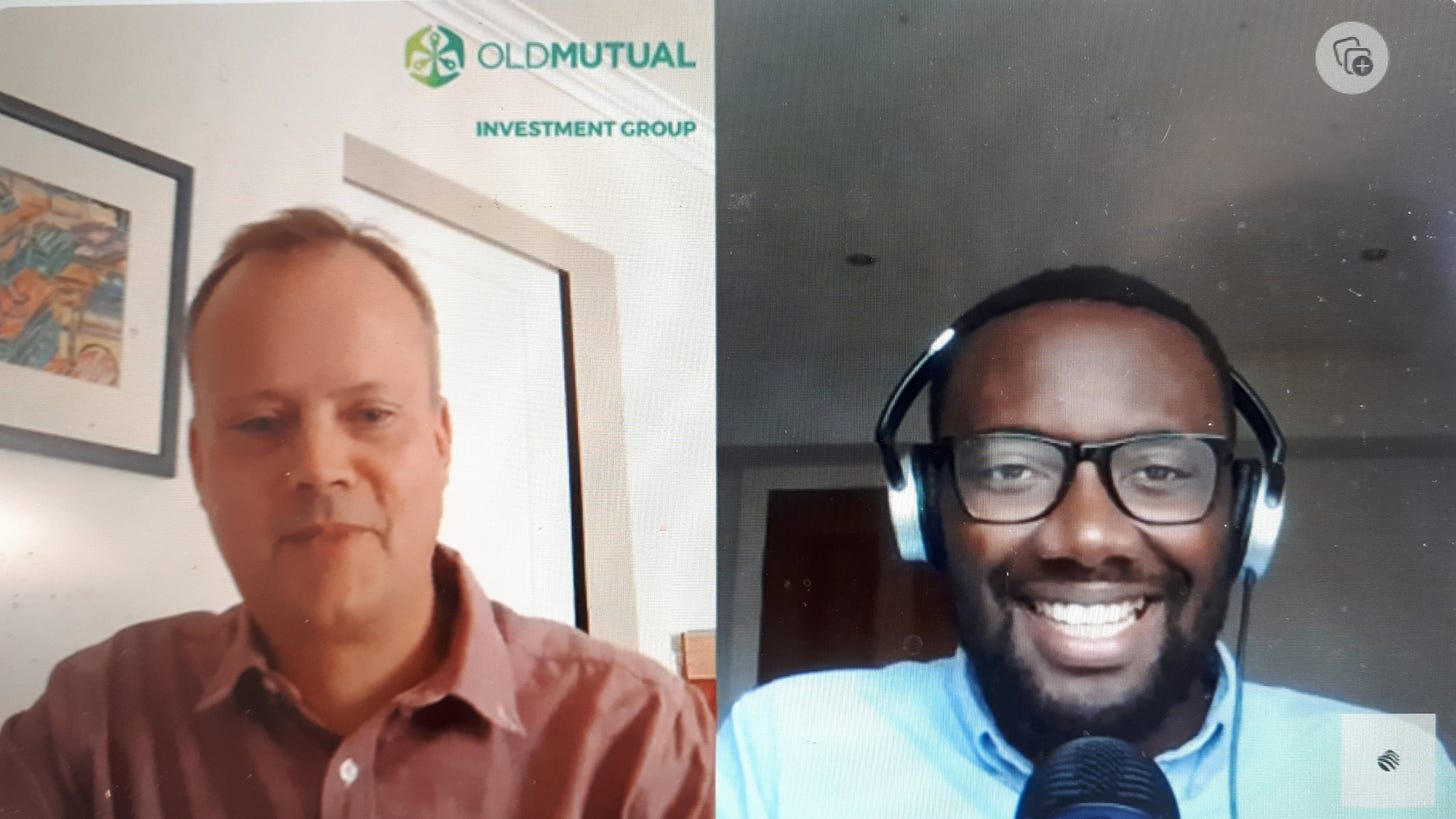The Money Managers Speak - Views on Investing in Africa’s Listed Equity Markets
Our favourite quotes from our 2023 Capital Markets Africa fund manager interview series.

It’s been a difficult year for various African economies. Investors saw slower, but still positive, growth in most markets. The African Development Bank (AfDB) reported last month that real GDP growth is expected to fall from 4% last year to 3.4% this year. Significant foreign exchange liquidity challenges in markets like Egypt and Nigeria have led to significant market uncertainty, while in countries like Zambia and Ghana, ongoing sovereign debt talks with international creditors have weighed on investor sentiment.
Since Capital Markets Africa launched in October 2023, we’ve had the privilege of interviewing different fund managers who, between them, invest in most of the continent’s equity markets. Here, we share some excerpts from those interviews. We’ve also included links to the full interviews for you to enjoy.
Note: The quotes below have been edited for clarity.
COLIN SMITH, MANAGING PARTNER, ALL AFRICA PARTNERS LLP:
"For most global allocators, Africa is not on the radar at all. Africa makes up just 40 basis points (0.4%) of the MSCI All Country World Index. It's basically non-existent. And of those 40 basis points, 30 basis points is South Africa and 10 is Egypt. Everything else, these wonderful opportunities in places like Nigeria, Ghana, Morocco, and Kenya are all completely off benchmark for global allocators. Unfortunately the understanding of the opportunity set is generally very low."
"Banks in Africa are just fundamentally far more profitable than they are in the rest of the world and that's for a fairly simple reason. They get relatively cheap deposits and are able to invest in pretty vibrant local domestic bond markets. The governments in Africa, many of whom don't have the ability like the Fed or the Bank of England to print money whenever they want, borrow substantially from the local bond markets in order to fund government expenditure. As a consequence, the real interest rates paid on bonds are very attractive. For the banks, this is a terrifically profitable business. Typically, banks in Africa earn between 20-30% return on equity. And some of the bigger and more profitable ones such as Equity Group in Kenya, FirstRand in South Africa, Zenith and Guaranty Trust banks in Nigeria, Commercial International and Crédit Agricole banks in Egypt, will consistently and routinely earn above 20% return on equity."
Listen to the full 30-minute interview with Colin.
RANDOLPH OOSTHUIZEN, PORTFOLIO MANAGER, OLD MUTUAL INVESTMENT GROUP:
"The tightening monetary cycle in the US is definitely making life difficult for many of our economies. One consequence is that budget financing for African governments has come under considerable pressure. Over the last year or so, we've seen currencies come under a lot of pressure not just in terms of the value of the currency, but also in terms of convertibility. We've seen that for a while now in Nigeria and it's recently emerged in Egypt. But we are hopeful that this tightening cycle is now nearing an end. All indications are that the Fed should be pausing at this level. They've hiked enough and markets generally expect them to start easing again at the beginning of next year. That's certainly good news for our markets."
"Although things are quite difficult in the short term, the offsetting factor is that valuations are very attractive at the moment. We've seen companies trading on very low multiples. Our fund is trading on a forward PE ratio of around 5x with a dividend yield of 7-8 percent, which is very, very attractive. And that's still with earnings growth in the 15% range. So it's a very attractive time to get exposure to the African investment story."
Listen to the full 20-minute interview with Randolph.
AXEL KROHNE, FOUNDER, KROHNE CAPITAL LLC:
"When I say markets imploded, what do I mean? I mean they became extremely inefficient, which is what us value investors want. In my last quarterly letter, I looked at some of the consumer names that I've invested in and looked at the peak market cap vs. the current market cap in US dollar terms. Fan Milk Ghana had a peak market cap of US$520 million. As I was writing my quarterly update, the market cap was just US$13 million. So, a 98% loss in capital. Or put differently, if the market cap had to go back to its all-time high again, it would have to go up 50 times. So as a US dollar investor, you're buying an incredible amount of company for very, very little money. The question is, will you readily find market liquidity? Probably not. But I think at these prices, it's a steal. Despite all kinds of sovereign defaults and possibly not being able to take your money out every day, you get paid quite handsomely by getting into super blue-chip companies that have been on the continent for a century and will probably be there forever.”
Listen to the full 17-minute interview with Axel.
© Capital Markets Africa, 2023
Founded by journalist Chipo Muwowo, Capital Markets Africa aims to raise the profile of African listed companies. Whether you're a retail or institutional investor, based in Africa or outside, we want you to be better educated about the investment opportunity set and the broader African equities market ecosystem. Subscribe today!



